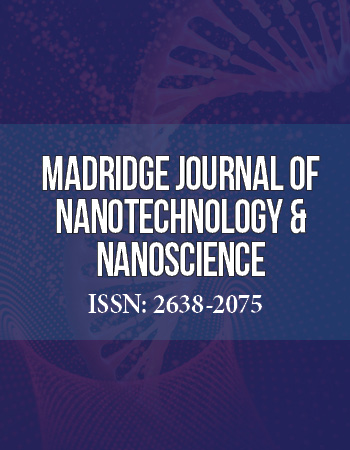International Nanotechnology Conference & Expo
April 04-06, 2016 | Baltimore, USA
Performance evaluation of uncoated carbide insert for end milling of aluminium alloy (6061 T6) with nanofluid MQL environment
1Faculty of Mechanical Engineering, Universiti Malaysia Pahang, Malaysia
2Automotive Engineering Centre, Universiti Malaysia Pahang, Malaysia
Cutting fluids are considered essential for a number of reasons such as decreasing friction between the workpiece and the cutting tool, reducing the tool wear thus enhancing the tool life and improving the surface characteristics, lubricating and cooling the interface between sliding surfaces, increasing productivity due to reduced costs through minimizing the heat generated at the mated surfaces and for flushing away the chips, debris and residues. Uncoated cemented carbide tools are tested for performance analysis in terms of flank wear in end milling of aluminium alloy AA6061 with a minimum quantity lubrication condition using TiO2 nanofluid. The results of the machining with water-based TiO2 nanofluid are compared with oil-based minimum quantity lubrication phenomena. Micro-abrasion, micro-attrition and adhesion wear leading to edge chipping are identified as the main wear mechanisms. Aluminium deposits as a result of adhesion and attrition on the tool flank regionare observed. The results show the capabilities of water-based nanofluid as a competent MQL medium, in terms of tool edge integrity and reduced adhesion losses, replacing the conventional oil-based MQL.
Keywords: MQL, nanofluid, wear, abrasion, attrition, adhesion
Biography:
Professor Dr. Md. Mustafizur Rahman is a consultant, a researcher currently working with the Faculty of Mechanical Engineering, Universiti Malaysia Pahang, Malaysia since April 2007. Dr. Rahman also served as a Deputy Director as well as acting Director in the Automotive Engineering Centre, UMP. He received his Ph.D. degree from the Department of Mechanical and Materials Engineering, Universiti Kebangsaan Malaysia. The research work of Dr. Rahman is focused on advanced machining, optimization, finite-element analysis, modeling of modern materials, nanofluids in machining applications, nanofluids in ICE. He has published more than 290 papers in international scholarly journals and conferences. He is also the member of Editorial Boards of seven scientific journals, including Editor-in-Chief, International Journal of Automotive and Mechanical Engineering (Scopus Index) and Journal of Mechanical Engineering and Sciences (Scopus Index). He has been the technical reviewer for over 25 scientific journals as well as the member of the technical board for conferences. He is fellow of Association of Computer, Electronics and Electrical Engineers (ACEEE) and Indian Society of Mechanical Engineers (ISME), senior members ofAmerican Society of Mechanical Engineers (ASME) and International Association of Computer Science and Information Technology (IACSIT), founder member of Malaysian Society for Engineering and Technology (mSET) and also members of several professional societies such as Institute of Engineer, Bangladesh (IEB); Bangladesh Society of Mechanical Engineers (BSME); International Association for Computation Mechanics (IACM); Malaysian Association of Computational Mechanics (MACM); International Association of Engineers (IAENG). He has been supervising nine PhD and 16 M.Sc. Eng. Candidates (by research) and more than 55 undergraduate dissertations.


